Related Research Articles
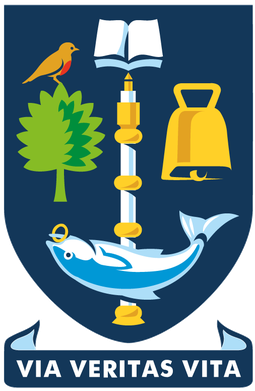
The University of Glasgow is a public research university in Glasgow, Scotland. Founded by papal bull in 1451 [O.S. 1450], it is the fourth-oldest university in the English-speaking world and one of Scotland's four ancient universities. Along with the universities of St Andrews, Aberdeen, and Edinburgh, the university was part of the Scottish Enlightenment during the 18th century. Glasgow is the largest university in Scotland by total enrolment and with over 19,500 postgraduates the second-largest in the United Kingdom by postgraduate enrolment.

Sir William Ramsay was a Scottish chemist who discovered the noble gases and received the Nobel Prize in Chemistry in 1904 "in recognition of his services in the discovery of the inert gaseous elements in air" along with his collaborator, John William Strutt, 3rd Baron Rayleigh, who received the Nobel Prize in Physics that same year for their discovery of argon. After the two men identified argon, Ramsay investigated other atmospheric gases. His work in isolating argon, helium, neon, krypton, and xenon led to the development of a new section of the periodic table.
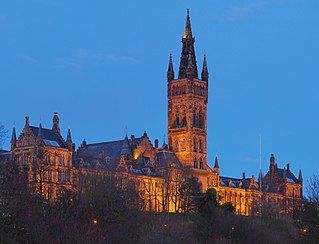
Glasgow is the most populous city in Scotland and the fourth-most populous city in the United Kingdom, as well as being the 27th largest city by population in Europe. In 2020, it had an estimated metro population of 1,861,315, The city was made a county of itself in 1893, prior to which it had been in the historic county of Lanarkshire. The city now forms the Glasgow City Council area, one of the 32 council areas of Scotland, and is governed by Glasgow City Council. It is situated on the River Clyde in the country's West Central Lowlands.

Matriculation is the formal process of entering a university, or of becoming eligible to enter by fulfilling certain academic requirements such as a matriculation examination.
The ancient universities of Scotland are medieval and renaissance universities that continue to exist in the present day. The majority of the ancient universities of the British Isles are located within Scotland, and have a number of distinctive features in common, being governed by a series of measures laid down in the Universities (Scotland) Acts 1858–1966. The Universities (Scotland) Act 1966 uses the term 'older universities' to refer to St Andrews, Glasgow, Aberdeen and Edinburgh. The same act provided for the independence from St Andrews of Dundee, which was then granted a similar form of governance under its royal charter.
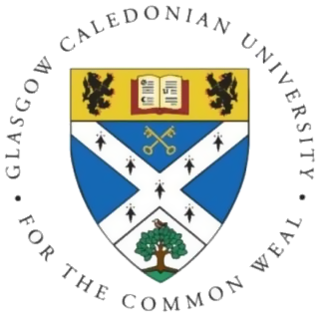
Glasgow Caledonian University, informally GCU, Caledonian or Caley, is a public university in Glasgow, Scotland. It was formed in 1993 by the merger of The Queen's College, Glasgow and Glasgow Polytechnic.
The Coalition of Higher Education Students in Scotland (CHESS) was a body representative of students in Scotland, founded in 2001 by the Students' Associations of Aberdeen, Dundee, Edinburgh and St Andrews Universities, and Glasgow University's students' representative council.
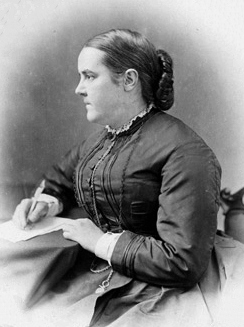
The Edinburgh Seven were the first group of matriculated undergraduate female students at any British university. They began studying medicine at the University of Edinburgh in 1869 and, although the Court of Session ruled that they should never have been admitted, and they did not graduate or qualify as doctors, the campaign they fought gained national attention and won them many supporters, including Charles Darwin. Their campaign put the demands of women for a university education on the national political agenda, and eventually resulted in legislation to ensure that women could be licensed to practice medicine in 1876.

The Lord Rector of the University of St Andrews is the president of the University Court of the University of St Andrews; the University Court is the supreme governing body of the University.
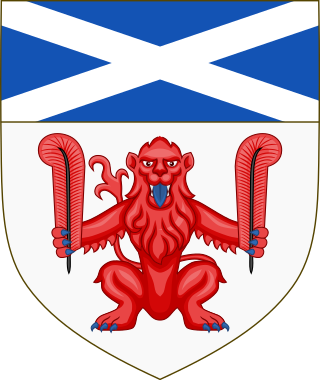
Lyon Clerk and Keeper of the Records is a legal and heraldic office in Scotland. The holder of this office is appointed by the Crown, and like the Lord Lyon King of Arms receives an annual salary. Lyon Clerk's duties include heraldic research, the preparation of papers, lectures and conducting and assisting with the preliminary business of application for a grant or matriculation of armorial bearings. This includes scrutiny of documents supporting the application. As Keeper of the Records the duties include maintaining the records of the Court of the Lord Lyon, overseeing the preparation of documents, allowing inspection of the Public Register of All Arms and Bearings in Scotland and other records, and issuing certified extracts when required. Until 1867 there was a Lyon Clerk Depute, and in 1986 Elizabeth Ann Roads became the first woman appointed to the office of Lyon Clerk and Keeper of the Records.
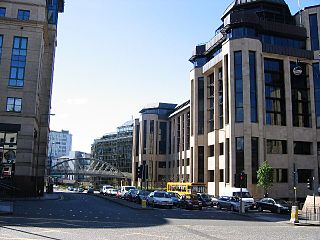
Edinburgh, the capital city of Scotland, is a powerhouse of the Scottish economy, as well as the wider UK economy. Edinburgh has been consistently one of the most prosperous parts of the country and has the strongest economy of any city in the UK outside London. Financial Times FDi Magazine has named Edinburgh as the "Best Large European City of the Future" and "Best Foreign Direct Investment Strategy " for 2012/13.

The Carnegie Trust for the Universities of Scotland is a charitable trust established by Andrew Carnegie in 1901 for the benefit of the universities of Scotland, their students and their staff.
James Roberton, Lord Bedlay was a Scottish advocate and judge. He was born to Archibald Roberton of Stainhall, youngest son of John Roberton 9th Laird of Earnock, and Elizabeth Baillie, daughter of Robert Baillie of Jerviston. He inherited Bedlay Castle from his father, who bought it from James, the 8th Lord Boyd. He became Lord Bedlay upon the occasion of being raised to the judicial bench in 1661.
Finlay A. J. Macdonald is a retired minister of the Church of Scotland. He was Principal Clerk to the General Assembly of the Church of Scotland from 1996 until 2010. In addition to his rapid rise up the ranks of the Church of Scotland, Macdonald is known for fostering co-operation between the various boards and committees which administer the Church and for steering the Church smoothly through its annual business meetings.
The ancient university governance structure in Scotland is the organisational system imposed by a series of Acts of Parliament called the Universities (Scotland) Acts 1858 to 1966. The Acts applied to what were termed the 'older universities': the University of St Andrews, the University of Glasgow, the University of Aberdeen and the University of Edinburgh. Together these four universities are commonly referred to as the ancient universities of Scotland. Whilst the Acts do not directly apply to the University of Dundee, the same governance structure was ordained for use by that institution in its royal charter.

Undergraduate gowns are a notable feature of academic dress for students at the ancient universities in Scotland.

Hew Scott (1791–1872) was a minister of the Church of Scotland parish of Anstruther Wester. He is largely remembered as a religious researcher and author. His "magnum opus" is the comprehensive, multi-volume work, Fasti Ecclesiae Scoticanae: The succession of ministers in the parish churches of Scotland, from the reformation, A.D. 1560, to the present time. This is a detailed, biographical record of each of the ministers of each of the parishes of the Church of Scotland from 1560 to 1870.. It was first published between 1866 and 1871 but it is regularly updated by the Church of Scotland.

Music schools in Scotland are available at several levels. Formal music education begins at 4½ years and can progress as high as postgraduate studies. Education in Scotland is a responsibility of the Scottish Government. Music is regarded as being an integral part of the culture of Scotland.
The 2014–15 Lowland League was the second season of the Lowland Football League, the fifth tier of the Scottish football pyramid system. The season began on 2 August 2014 and ended on 13 May 2015. The Spartans were the defending champions. The league expanded to 14 teams with Edinburgh University and BSC Glasgow joining.

Frances Helen Melville, was a Scottish suffragist, advocate for higher education for women in Scotland, and one of the first women to matriculate at the University of Edinburgh in 1892. She was president of the British Federation of University Women from 1935 to 1942.
References
- ↑ "Matriculation: Signing Your Life Away", The Sinner Archived 1 January 2007 at the Wayback Machine
- ↑ Calendar 2003-04 , Glasgow University Archived 30 December 2006 at the Wayback Machine
- ↑ Postgraduate Prospectus 2008 - Terms and Conditions , University of Edinburgh